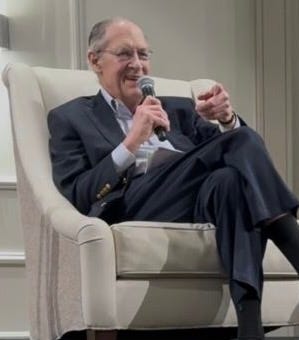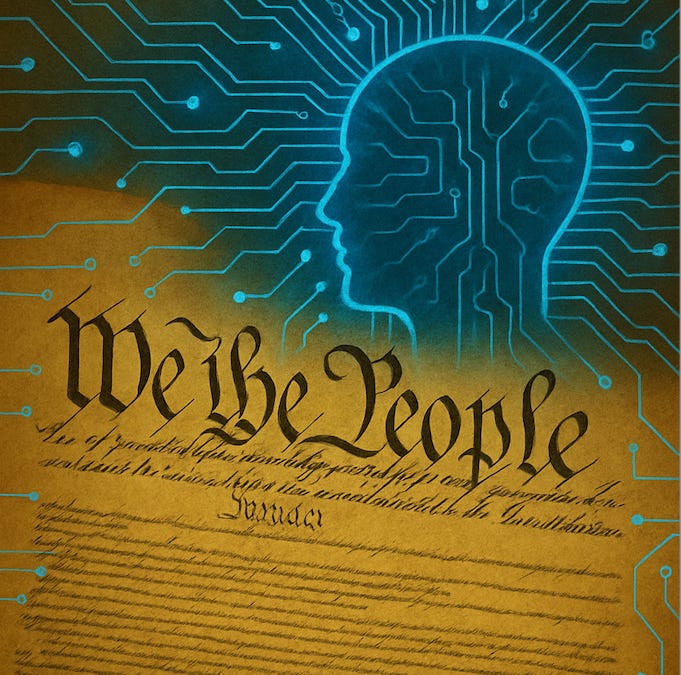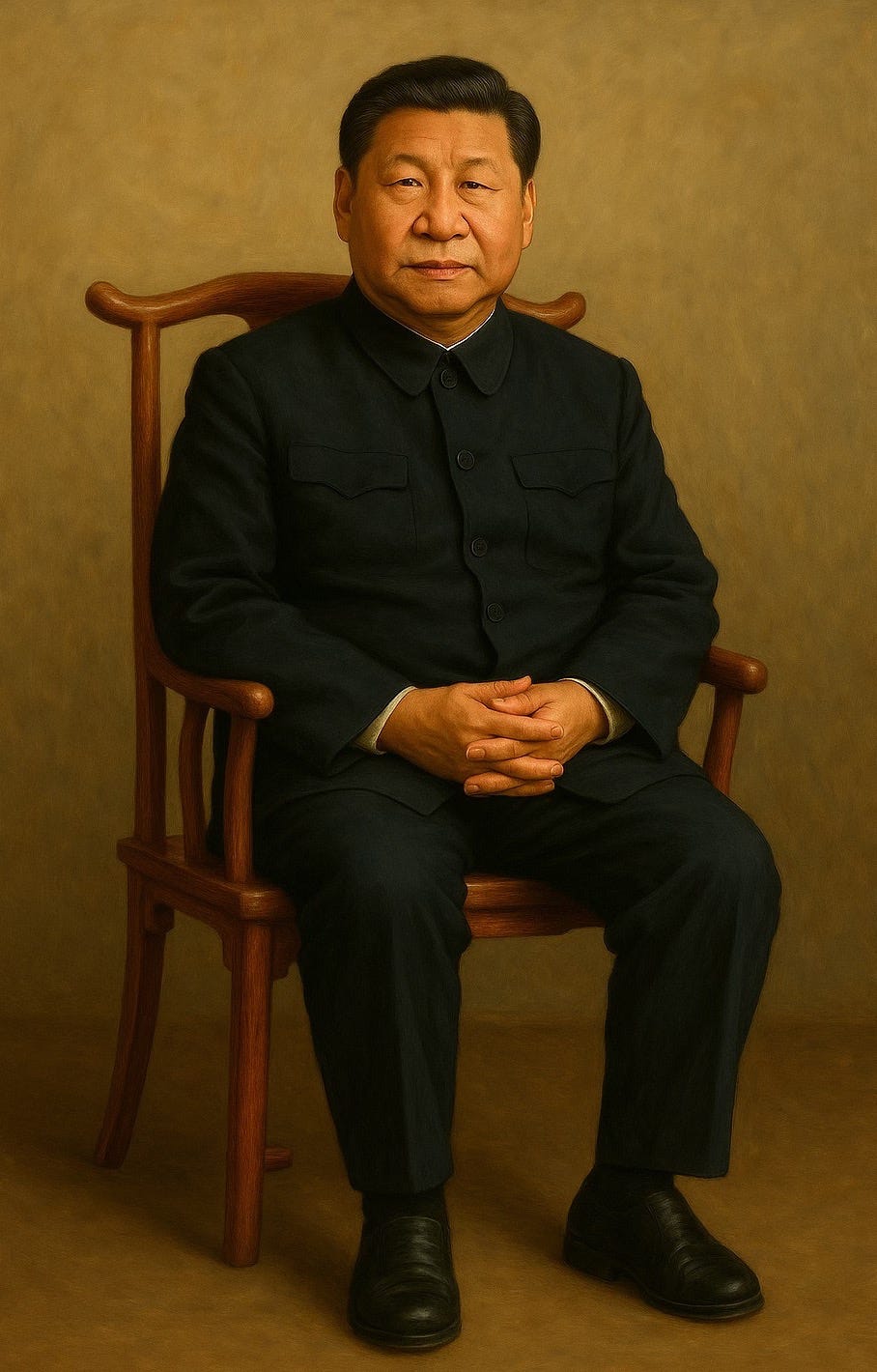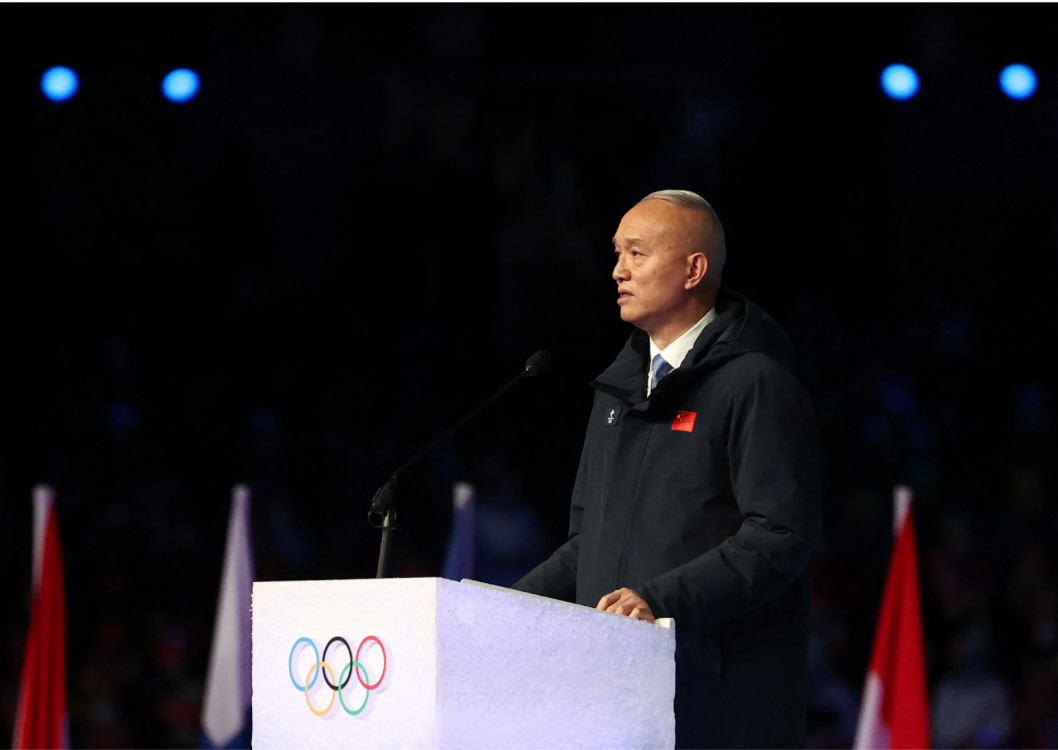→ econVuere:Vue ↪ Sep 16, 2024
We wage war so that we may live in peace — Aristotle, Nicomachean Ethics
In this issue of re:Vue, we look at how moments of turmoil, from politics to financial markets, can transform into opportunities for reversal, renewal, and reflection.
Murphy’s Law states that everything that can go wrong, will go wrong. Its inverse, Yhprum’s Law (Murphy spelled backwards) reminds us that sometimes what can go right, will. The recent news from NASA that life may have existed on Mars is a wonderful example of things going right in spite of harsh conditions.
Monday’s announcement by President Trump that China and the US have reached a tentative agreement on a blocking issue, the ownership of TikTok, opens the door to more negotiations. My initial reaction was, what was the Chinese readout? Soon thereafter I received confirmation from the Chinese Embassy in Washington. Another example of something that might have gone wrong but did not. We will await the results from the Trump-Xi call on Friday.
That news, combined with the expected Fed rate cut on Wednesday, drove markets to record highs on Monday. In spite of panic this year over policy shifts, the US economy is performing better than its peers. Job numbers, once the bedrock of monetary policy, now seem less indicative of true labor conditions and are subject to major revisions. But most Fed watchers agree that there is enough of a trend line to allow the Fed to do what President Trump has long, and loudly, urged. However, economic pressures are real: Moody’s Analytics details a 2-million unit national housing shortage, especially in workforce rental markets.
At Jackson Hole, economist Laura Veldkamp (Columbia) noted that she could find no evidence that AI is destroying jobs, and an MIT study revealed that 95% of corporate efforts to employ AI have ended in disappointment. My colleague Mark Roeder would disagree; he writes in his article below that AI will dampen employment to the extent that we will need to devise a new social contract. This is the first in our series “Just Around the Corner: The World in 2030”.
The hit many feared to the US economy from tariffs has also failed to show up in GDP data. Moreover, our relations with allies seem to be stabilizing ahead of this month’s UN General Assembly meetings in New York, where more olive branches may be extended. As economic historian Zachary Karabell recently wrote:
The trade war is over… there are no more surprises left, and governments and markets have now adjusted to the chaos machine that is the Trump administration.
Zachary Karabell, on X
Here in Chicago, many braced for the National Guard to arrive, with attendant protests, but so far things have been more or less peaceful—although the underlying problems of crime and education that have plagued our beautiful city persist. National attention, however, has given some of us hope that overdue reforms may be possible. This is despite the unwillingness of our local officials, cosseted by heavy security, to acknowledge how crime affects the everyday life of citizens here.
Chicago Mayor Brandon Johnson, for example, is reported to have up to 100-150 security officers, plus 20 personal bodyguards—more than the heads of government of the UK, Germany, and France. It would be impossible for officials here to understand the anxiety level of a young woman riding public transportation in this city. The gap between lived experience and official denials and detachment has a human as well as an economic cost. According to the University of Chicago Crime Lab, if even a fraction of the costs of crime were recouped by businesses, it would amount to billions of dollars of additional revenue—and a much higher quality of life.
Beyond our city, the murder of Charlie Kirk is another reminder that violence in America is a national issue, and even an international issue, based on demonstrations in London and Seoul this weekend. In Chicago, crime affects individuals and erodes community trust, but political assassinations, a recurrent feature of our history, reverberate far more widely.
What struck me most about this young man from the Chicago suburbs was his Socratic style of engagement with students. My Greek heritage leads me to reflect on Socrates, accused of corrupting youth in an Athens unsettled by war and internal division, and condemned to death by his own city. His opponents initially rejoiced over his death, but soon regretted silencing him. However, from that loss emerged the writings of Plato and Aristotle, whose work still shapes how we think about political life today. Aristotle called this kind of reversal a peripeteia, a reminder that tragedy can bring renewal, and, hopefully, a more temperate national dialogue.
These types of historical reversals can come from unexpected places. Cryptocurrencies were supposed to support criminal elements before collapsing in a heap, but those fears have not been realized. My podcast guest Collin Canright (see #2 below) instead sees a future in which traditional finance and decentralized finance work together to provide much smoother payment systems. Similarly, Joel Ross, another recent guest on The Hale Report and included on our reVue list, remains cautiously optimistic, despite Wall Street denizens who have been calling for a crash that never came.
So, many things that we have feared have not turned out all that badly—and even tragedy contains the seeds of renewal. But optimism is not a strategy. As econVue contributor Michele Wucker often reminds us, we need to be focused on the gray rhinos—the risks we know—and do what we can to mitigate them. Hope is not enough.
With the thesis in mind that we often are able to muddle through even difficult situations, despite initial inaction and lack of foresight, please enjoy this recap of our recent articles, panels, and podcasts. Feel free to share what our contributors have been writing and discussing over the past month.
A final note, an invitation: if you are in the Chicago area this Wednesday, the new Chicago chapter of the National Association of Business Economists (NABE) is having a pop-up event from 5-7 PM to discuss the Fed decision expected that afternoon. [*Details below #16] Hope to see you there!
–𝓁𝓎𝓇𝒾𝒸 💬
Editor-in-Chief
re:Vue is all our newsletters condensed into one convenient, unobtrusive e-mail, prefaced by our editorial commentary. You can select exactly which econVue newsletters you receive or omit, including this one, at any time in your econVue account.Stories in ↪ re:Vue
↪: Now on econVue 🔈
1.:
🎧 THE HALE REPORT™ ⸱ Episode 72
Joel Ross — Where Main Street Meets Wall Street→
Hosted by LYRIC HUGHES HALE ⸱ SEP 7, 2025
My guest for the 72nd episode of The Hale Report™ is Joel Ross, a Wall Street veteran and author of the long-running Ross Rant newsletter. In this conversation, Ross argues that while markets appear strong, structural cracks are widening — from Washington’s fiscal imbalance to real estate’s looming wave of demolitions. He contends that interest rates won’t fix affordability or revive empty offices, and that Main Street realities remain out of sync with Wall Street rallies. His blunt takeaway: the next crisis won’t come from rates, but from ignoring the hard truths about debt, politics, and policy. 💬
2.:
🎧 THE HALE REPORT™ ⸱ Episode 71
Collin Canright — Money in Motion: Stablecoins, Payments, and the Global Fintech Race→
Hosted by LYRIC HUGHES HALE ⸱ AUG 24, 2025
My guest for the 71st episode of The Hale Report™ is Collin Canright, founder of the Chicago Payments Forum and editor of FinTech Rising. In this discussion, we explore the global race for payments: are stablecoins the bridge to seamless finance or the return of private money? Can they reinforce U.S. dollar dominance while reshaping trust in digital identity? What makes this moment different is not speculation — it is adoption. Money is no longer just moving; it is transforming into the infrastructure of the next economy. 💬
3.:
👥 PANELS
Recap: Post-Jackson Hole → All Options on the Table
AUG 25, 2025
If you missed our discussion on August 25th, catch our Jackson Hole panel featuring Michael Lewis, Karim Pakravan, Gordon Parrish, Michele Wucker, Kathleen Graham, and Mark Roeder, moderated by Lyric Hughes Hale. The panel explored U.S. growth risks, Fed independence, fiscal fragility, labor data accuracy, and the disruptive forces of demographics and AI.💬
4.:
§ Reflection
LYRIC HUGHES HALE ⸱ AUG 17, 2024
“Is legacy measured in headlines or in the quiet marks we leave on loved ones? Jeanne Hale’s life in Vermont reached far beyond through family and memory. What makes her story different is not fame, but resilience and joy. She was a Queen of the Night, her brilliance fleeting, yet enduring. 💬
5.:
§ Tech & AI
We Need a New Social Contract for AI→
MARK ROEDER ⸱ AUG 19, 2025
“In the coming age of intelligent machines, is AI the ultimate savior or the next existential threat? AI is no longer a tool, it is becoming the terrain on which the new social contract will be written. 💬
6.:
§ Regional
LYRIC HUGHES HALE ⸱ AUG 12, 2025
“In Xi Jinping’s China, is centralization the ultimate strength or the system’s fatal flaw? Power is no longer institutional, it is personal — and every negotiation begins and ends with the man in the Ming chair. 💬
7.:
§ Regional
LYRIC HUGHES HALE ⸱ AUG 5, 2025
“In Beijing’s opaque politics, is succession a managed process or a looming crisis? Can Xi Jinping’s system endure without Xi himself at the center? What makes this moment different is not just speculation, it is succession without precedent. The question is no longer if Xi will be replaced, but who could bridge the gap when the chair is suddenly empty. 💬
📌 Notes
8.:
Geopolitics and global markets are colliding in the Middle East as the region adapts to new energy realities. What happens here will reverberate across Europe and Asia. 💬
9.:
10.:
11.:
12.:
13.:
14.:
“As the next government shutdown slowdown approaches, Washington should be smarter about cutting expenses and keeping investment.”
15.:
↪: Off econVue 🔈
16.:
* 📅 NABE Chicago Event Registration:
Pop-Up Roundtable: 9/17 Federal Reserve Decision ↗
September 17, 2025
Metropolitan Club
233 South Wacker Drive, 67th Floor
Chicago, IL 60606
Members: $35 Non-Members: $40
17.:
→ The International Economy
Lyric Hughes Hale ⸱ SPRING 2025
In 2036, privacy may eclipse oil, gold, and even data as the most valuable resource. A generational shift toward decentralization — from money and identity to memory itself — will drive new business models built on encryption and consent. Companies that sell privacy, not exploit it, will thrive in this transformed economy. 💬
↪: What econVue’s reading ✁
Keep reading with a 7-day free trial
Subscribe to econVue to keep reading this post and get 7 days of free access to the full post archives.












